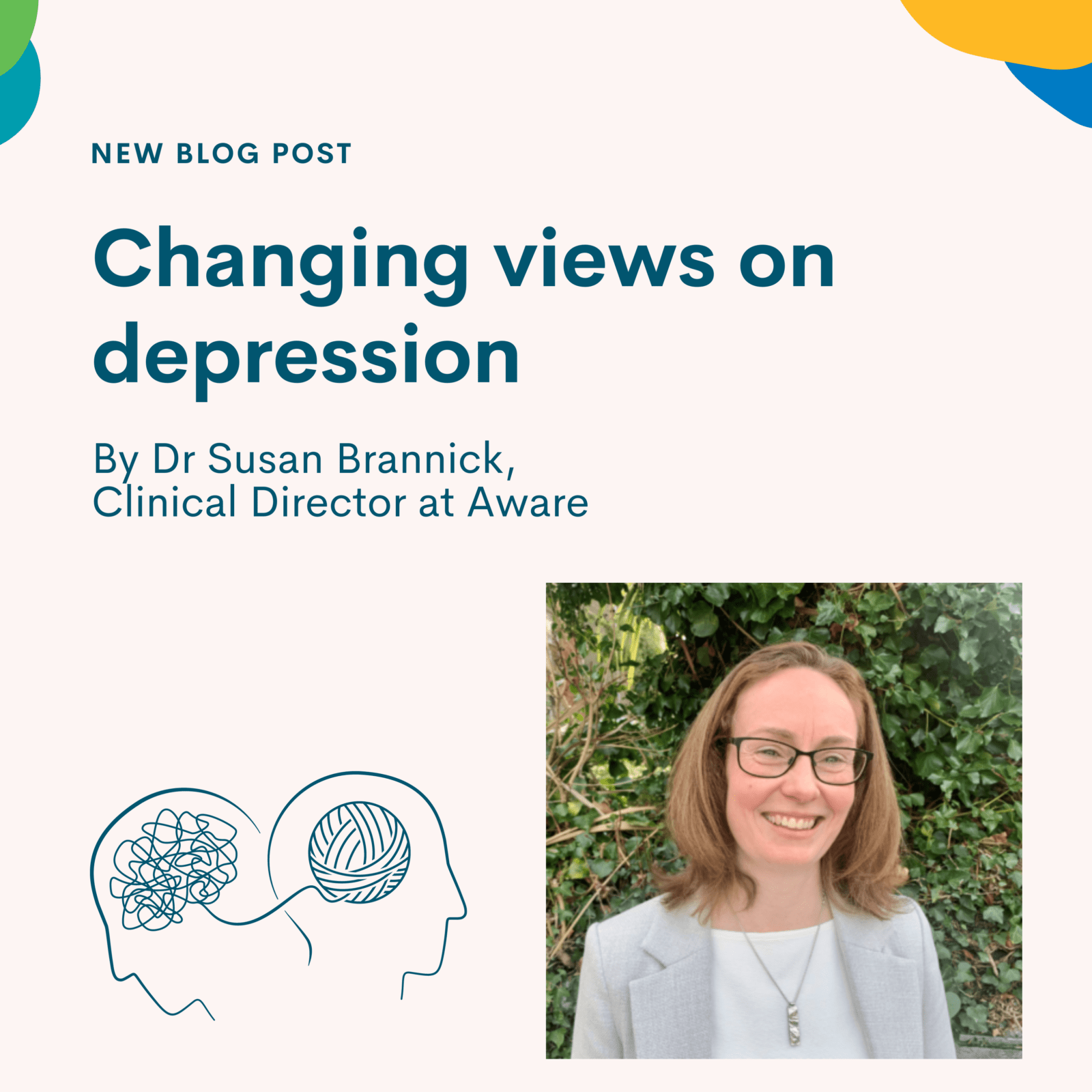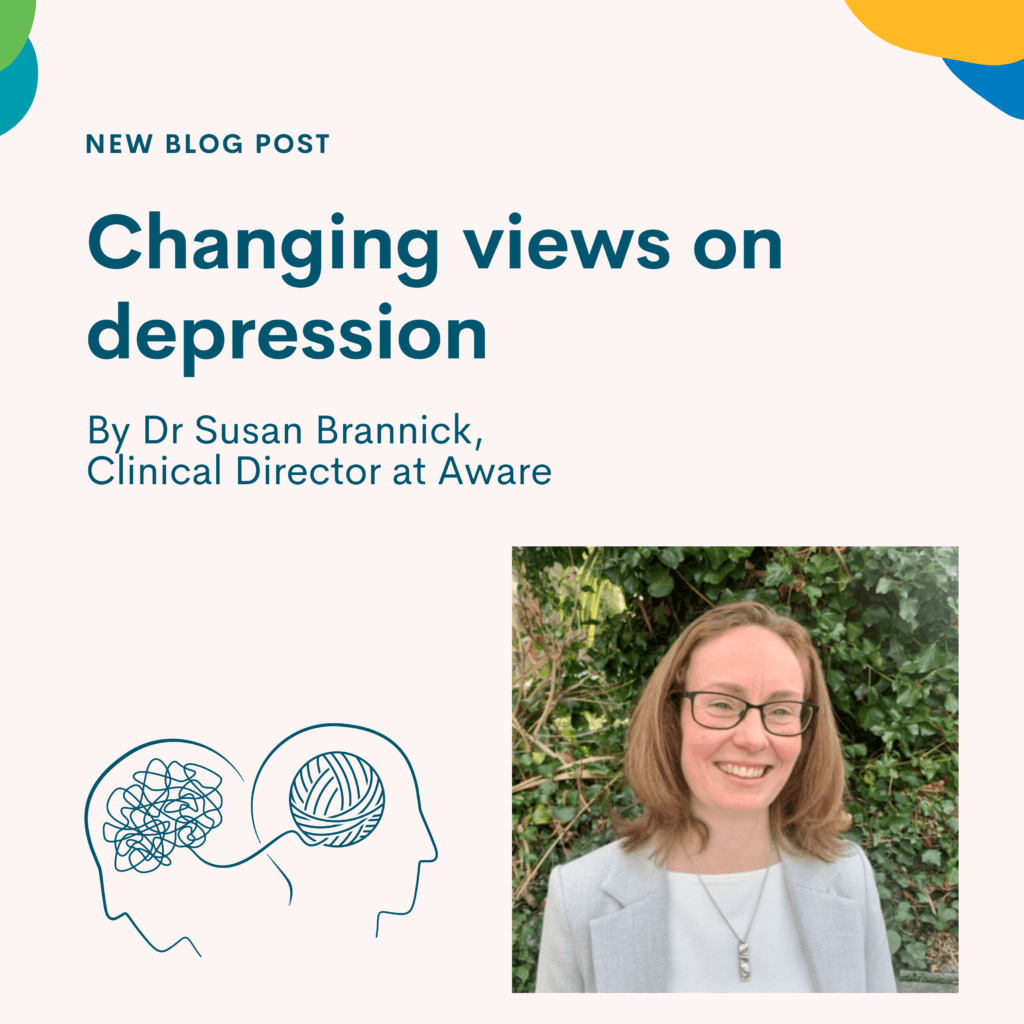
‘Can you be depressed without having depression’?
This question was put to me earlier in the week and it led me to think about the wider question of how we understand depression and the meaning we make in it.
In a recent paper on how the understanding of depression can influence how people respond to and overcome it, the authors note ‘the human experience of what we now call depression – low mood, lack of pleasure, low motivation, and various physical symptoms – has been described for at least two-thousand years’. They point out that how we understand this experience has shifted over time. Explanation has moved from depression being caused by things in the outside world to the internal. For instance, early explanations invoked the spiritual, e.g. demonic possession, to the moral, e.g. a response to ‘sinful behaviour’ then moving to the inside world, e.g. unconscious conflict in the mind, to current explanations of depression as a disorder of genetics and biochemical imbalances and/or psychological processes. The understanding of what depression then informs how it is treated.
This study looks at the relationship between how a person understands depression and their beliefs about their agency (what you can do yourself), ideas about recovery as well as stigma. The authors argue that whilst a biogenetic explanation of depression (the idea that depression is due to issues in brain chemistry and genes) has many benefits, research also shows that it has the potential to impact negatively on the experience of hope and curiosity which are fundamental aspects of recovery.
They suggest that a biogenetic explanation can lead to a genetic essentialism. This is the idea that traits or behaviours come about because of a fixed or unchangeable genetic or neurochemical condition. This bias can then influence how a person may respond to their experience of depression. Studies suggest it can also create a separation of people with depression into a separate category, i.e. as different from those who don’t have depression. So it may imply an idea of otherness or an ‘us and them’ mentality which can further fuel stigma in mental health.
Whist the authors state they are keen not to downplay the importance of genetic and chemical aspects of depression they put forward the idea that depression could ‘serve a function’. Depression they argue, could signal something that requires attention and action and thus could be adaptive. They posit that this explanation of depression could promote more hope and belief in change and thus improve outcomes for people experiencing depression.
When the authors tested this in their randomised control trial, they found that people who see emotions as helpful and changeable showed differences in how they then managed emotions, differences in their depression symptoms and what they wanted for treatment. People who were given the signal explanation (depression as serving a function) reported a better sense of agency and autonomy in overcoming depression and less self stigma. It may be that this explanation encouraged hope in the study participants.
In as much as the experience of what depression feels like will be different for different people, ways of making sense of their own experiences of depression will also differ and diverge across the vast landscape of what we consider to be depression. I believe that a crucial aspect of recovery is the rediscovery and mobilisation of hope again. Hope that things can be different, better. Hope can be a bridge from despair to taking first steps to trying out ways to gain insight and make changes. To live again. It is possible that different paths to meaning making have the potential to offer hope in depression.
To hear a different perspective again, this month’s webinar will feature Lucy Johnstone discussing her work on reasons why people may experience difficulties like depression and how power and social environments can influence mental health. I look forward to the discussion.
See here for more details and how to sign up.
This blog is by Dr Susan Brannick, Clinical Director at Aware as part of a monthly blog series.


